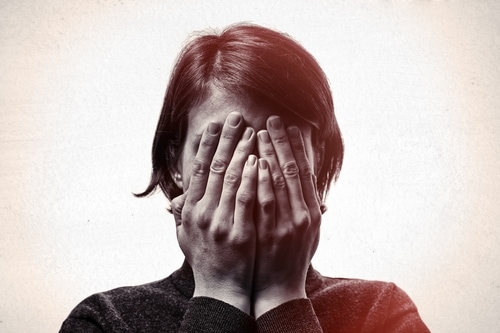The hallmark of shame is I am not good enough. As I have worked with eating disorder patients over the years, much of their time is spent in comparing themselves to others. As they do this the overwhelming feeling of I don’t measure up, I have no worth, I don’t matter continues to grow and grow. Comparison is truly the thief to happiness. Eating disorder patients struggle with what I call ED in the head thoughts anywhere from 60% to 95% of the day. For some, it is a constant battle going back and forth dealing with these intrusive thoughts. Imagine for a moment putting on headphones that were playing music you couldn’t stand and turning the volume up to a level that hurt. Now, see yourself walking around your day at work, at home, interacting with others and ask yourself what would that be like? Welcome to the world of someone struggling with an eating disorder.
I wanted to focus on one of these components, that is the source of our thoughts, and where ED in the head is coming from and how those ED thoughts start to create habits in the person’s eating disorder behavior. Habit is an impersonal, thought-based experience that one can address without rehashing your past or analyzing your life. It is not about a lack of willpower or discipline, and it has nothing to do with being ignorant of triggers or not using the right coping mechanisms. Ending a habit is about connecting with the truth of who you are, seeing the true nature of your habit and yourself. What I have seen is that people’s habits are rooted in an attempt to feel better. Nearly all habits start as a way to not feel what you are feeling, a way to leave the present moment and often by numbing out in some way and try to find or return to a more peaceful and calm home base. When you feel restless, angry, stressed etc. you stumble upon some behavior (restricting, binging, purging, over-exercising, self-harming) or obsession that instantly soothes that restlessness. Once that happens the habit has taken hold. Now your brain is focused on keeping that habit alive, and it uses urges to do that. Urges are simply thoughts or feelings that encourage the person to act on their habit. This becomes a vicious cycle in the eating disorder world. Each time the person obeys the urge it strengthens the brain neurological connection (what fires together wires together). The stronger and more frequent urges become, the harder it is to do anything other than give in to them, which sets in motion a painful, habit-reinforcing cycle. That is when the eating disorder patient truly feels they are battling another entity within themselves and the war begins day in and day out.
Mike Gurr M.S., M.A., L.P.C., CDWF
Executive Director, The Meadows Ranch

